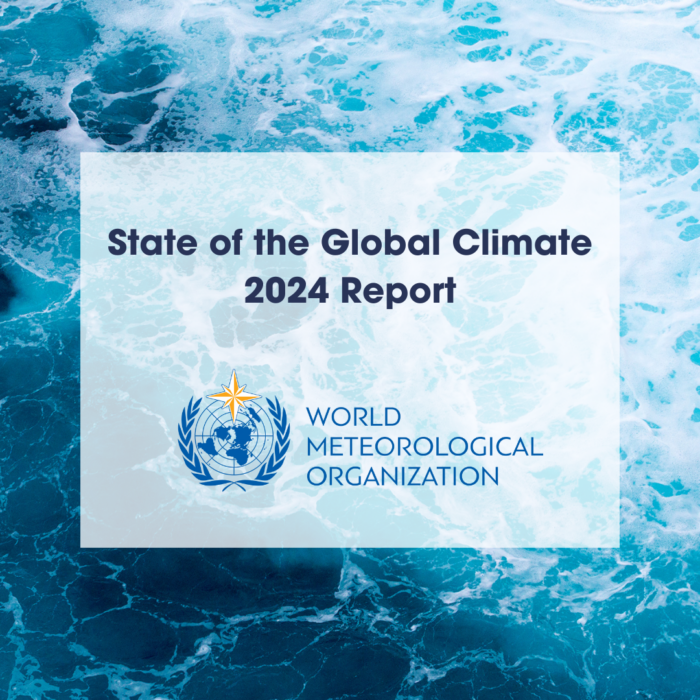Mercator Ocean International has contributed in the recently released World Meteorological Organization’s (WMO) State of the Global Climate 2024 report. This comprehensive report reveals that 2024 has surpassed 2023 as the warmest year on record, highlighting the ongoing challenges posed by climate change.
Karina von Schuckmann, an Oceanographer and Mercator Ocean’s Senior Advisor on Ocean Science for Policy, co-authored two chapters in the report, focusing on Ocean heat content and water pH levels.
Von Schuckmann emphasized the significance of these findings, stating, “Our analysis shows that the Ocean continued to warm and get more acidic in 2024. While this is concerning, we are glad to be able to help inform policymakers with this reliable evidence. We continue strengthening our services at Mercator Ocean to support coastal communities.”
Ocean Heat Content
The key findings are:
- In 2024, Ocean heat content reached the highest level in the 65-year observational record, surpassing the previous record set in 2023.
- Each of the past eight years has set a new record for Ocean heat content.
- The rate of Ocean warming over the past two decades (2005–2024) is more than twice that observed over the period 1960–2005.
Observed Ocean warming shows Earth is out of energy balance. Around 90% of surplus energy warms the Ocean, indicating climate change. Ocean temperatures, measured from surface to 2000m by shipboard measurements and Argo buoys, show clear warming. This warming is irreversible on centennial scales and will continue, even with low emissions. Consequences include marine ecosystem degradation, biodiversity loss, reduced carbon sink, intensified storms, and sea-level rise due to ice loss.
Ocean pH levels
The key findings are:
- Acidification of the Ocean surface has continued over the past 39 years, as evidenced by the steady decrease in global average Ocean surface pH.
- Regionally, Ocean acidification is not increasing uniformly. The most intense decreases in regional surface pH are observed in the Indian Ocean, the Southern Ocean, the eastern equatorial Pacific Ocean, the northern tropical Pacific, and some regions in the Atlantic Ocean.
Around a quarter of CO2 emissions from human activities during 2014–2023 were absorbed by the Ocean, causing a drop in pH known as Ocean acidification. Despite remaining slightly alkaline, the continued decrease in pH affects marine life, leading to respiratory stress and reduced thermal tolerance. Acidification impacts habitat, biodiversity, ecosystem services, and food production from shellfish aquaculture and fisheries.
Other key findings from the overall report
The WMO report shows that atmospheric concentrations of carbon dioxide have reached unprecedented levels, the highest in the last 800,000 years. The year 2024 marked the warmest year on record, with temperatures approximately 1.55°C above the pre-industrial average of 1850-1900. Each of the past ten years has individually been the warmest on record globally. Additionally, the past eight years have consecutively set new records for ocean heat content. The Antarctic ice extent has seen its three lowest levels in the past three years, coinciding with the largest three-year loss of glacier mass on record. Furthermore, the rate of sea level rise has doubled since satellite measurements began.
Mercator Ocean and the WMO
Mercator Ocean collaborates closely with the WMO to provide essential Oceanographic data and expertise, contributing to global climate reports and supporting evidence-informed policies.
The organization remains committed to advancing climate science and providing essential data to support global efforts in combating climate change. Through its contributions to the WMO’s report, it continues to empower policymakers with the knowledge needed to make informed decisions for the future of our planet.

